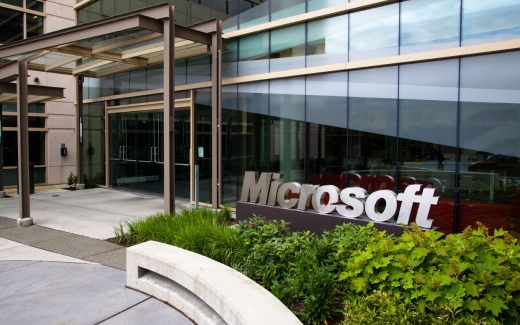One of the long-standing questions about who will take over as chief executive officer of Microsoft Corp. (NASDAQ: MSFT) has been answered. It will not be Alan Mulally of Ford Motor Co. (NYSE: F). Mulally has said he will remain at Ford through at least the end of 2014. Our interest is the real “why” behind the decision.
This is a good news bad news scenario. Ford gets to keep the man who was widely credited for getting the company in order before the recession. This kept Ford from having to go hat-in-hand to Uncle Sam like rival General Motors did. Ford turned around rapidly, and the company was even able to reinstate a dividend as soon as 2012.
A fund manager named Chris Marangi from Gabelli (GAMCO) noted on Bloomberg TV that the message for Microsoft is that maybe it is time for a fresh set of eyes from the outside. He even went on to say that Microsoft should go ask John Malone of Liberty Media, who he thinks should run Microsoft ahead.
The reasons that Mulally declined are of course speculative, but they are the most likely we can consider. First and foremost, Mulally gets to capstone his career with an assured victory at Ford. That is undeniable by any measurement, but his positioning inside of a Microsoft might not have translated to victory in an Apple- and Google-dominated future.
Another issue is that Mulally is 68 years old. Microsoft’s average board member is already old, and Steve Ballmer and Bill Gates are among the youngest governing Microsoft’s board. Mulally had to realize that taking over such a convoluted technology giant was more complicated than perhaps he was willing to endure.
And what about the role of Ballmer as current CEO and Gates as chairman? Certainly, Gates would be calling to keep a watchful eye on his empire. Ballmer already instituted a complicated restructuring, even knowing he was on his way out.
Another issue is the thunder of dividends and buybacks — it will hard for whoever replaces Ballmer as CEO to get any new momentum. Microsoft already yields in excess of 3%, which is high for a technology company.
Perhaps the last issue is the hardest for any investor to hear. What will happen if a new CEO comes in and points out that the software and technology services businesses are all that matters? The rest of the company’s efforts do not contribute the billions and billions to the bottom line. If the future strategy is a “going back to our roots in software” strategy, no one is going to be impressed. Sadly, that could have a small chance of happen.
Rick Sherlund once outlined that Microsoft could get back up to $45 or even $50, but one of his points was to bring in Mulally as CEO. Other CEOs may be just as magic, but Microsoft is down 1.3% at $35.95, and we would point out that Microsoft shares fell handily in December when Mulally issued a soft denial that he would take over as CEO of Microsoft.
There were simply too many reasons for Alan Mulally not to go to Microsoft. Getting back to Seattle just wasn’t reason enough.
Are You Ahead, or Behind on Retirement? (sponsor)
If you’re one of the over 4 Million Americans set to retire this year, you may want to pay attention.
Finding a financial advisor who puts your interest first can be the difference between a rich retirement and barely getting by, and today it’s easier than ever. SmartAsset’s free tool matches you with up to three fiduciary financial advisors that serve your area in minutes. Each advisor has been carefully vetted, and must act in your best interests. Start your search now.
Don’t waste another minute; get started right here and help your retirement dreams become a retirement reality.
Thank you for reading! Have some feedback for us?
Contact the 24/7 Wall St. editorial team.




